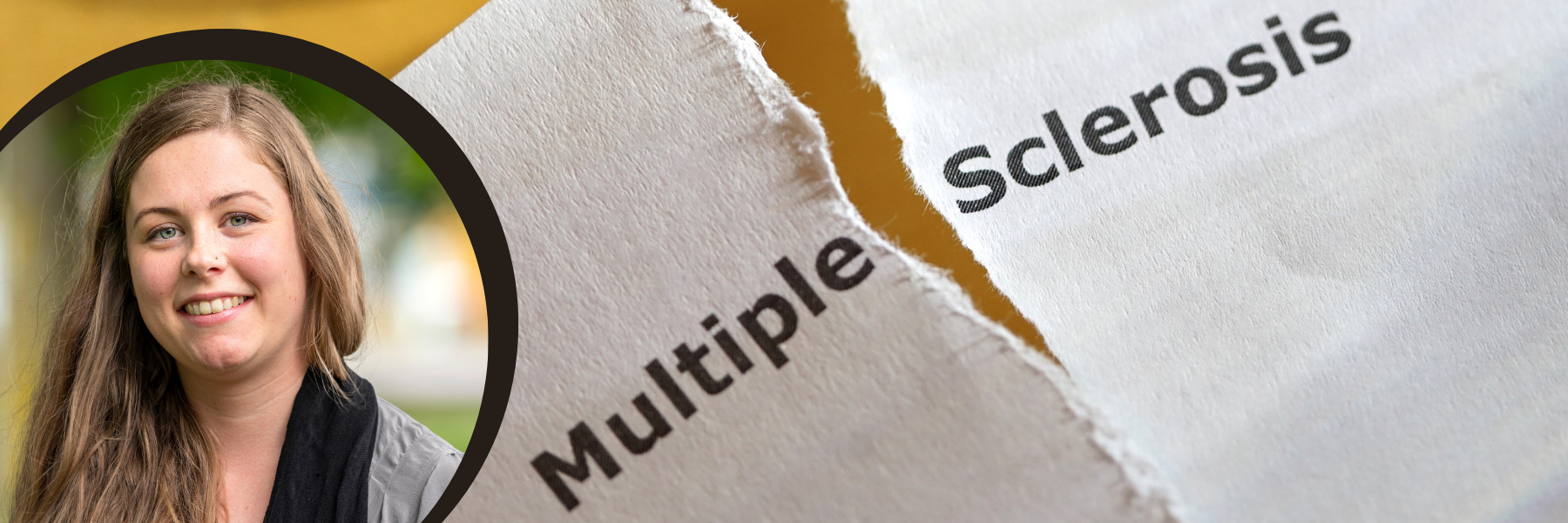Participants sought for Multiple Sclerosis trial
October, 2022
Volunteers living with Relapsing Remitting Multiple Sclerosis are needed for a pilot clinical trial investigating the effects of probiotics on the gut-brain connection and cognitive symptoms in MS.
With funding from the Clifford Craig Foundation and MS Australia, ‘Cognition in multiple sclerosis’ is being coordinated by University of Tasmania PhD student Terry Purton.
It is hoped this study may lead to more effective rehabilitative treatment programs for people living with MS who experience difficulties with their cognition.
As a participant in this study, you will:
Undertake a 12-week treatment with a probiotic supplement (random allocation to activate probiotic or placebo).
Be asked to complete a questionnaire, undertake a brief interview, undertake some face-to-face assessment tasks, and provide blood, urine and stool samples. The questionnaire should take around 1 hour and the interview/tasks no longer than 2.5 hours to complete.
Be reimbursed $60 for your participation at the end of the final assessment session.
For further information or to register, contact Terry Purton on (03) 6324 3129 or email terry.purton@utas.edu.au.
As this important study progresses, we caught up with Terry to find out more about her work and how people can help.
“We are very appreciative to anyone who volunteers their time to participate in our studies.”
Terry Purton, PhD student and Study Coordinator
Q: Where does your interest in MS research come from?
A: There are a few reasons for my interest in MS research. My undergraduate studies were in psychology, and I’m particularly interested in conditions that affect the brain and whether the gut may be involved in these conditions. I was also aware growing up that MS was prevalent in Tasmania, and we had family friends who were living with MS. There is such a strong research community in the MS space in Tasmania and at the time of commencing this project, there was an increasing amount of evidence that the gut-brain connection may be implicated in MS. It felt like a natural step for me to go into MS research.
Q: Can you provide an update on what stage this project is at?
A: The project has two stages. We are currently recruiting for the pilot clinical trial, which comprises stage 2 of the project. This is an exploratory trial which aims to improve our understanding of the role of the gut-brain connection in MS and help determine whether 12-weeks of probiotic supplementation (versus placebo) can improve inflammatory markers and cognitive symptoms for people living with Relapsing-Remitting MS.
The first stage involved examining how links between markers of inflammation in the body and cognitive symptoms change over time in MS and was undertaken in 2021. We invited participants from a previous study (conducted in 2016-2017) to return and complete the same tasks as they had in the first study, to allow us to investigate how these outcomes have changed over the 4-to-5-year period. Twenty-seven people living with MS participated in the 2021 follow-up study. This data is currently being analysed.
Q: What are your aims/hopes for this project?
A: This project has several aims, most importantly, the project aims to improve the health and quality of life of Tasmanians living with MS. It is the hope of our research team that improving our understanding of cognitive symptoms, how they relate to other processes in the body, and investigating the therapeutic potential of targeting the gut-brain connection, will inform the development of adjunct therapies and allow better management of cognitive symptoms for people living with MS. As a pilot trial, this project also aims to provide preliminary evidence to support a larger, randomised controlled trial in the future.
Q: What’s your message for someone considering volunteering their time for this trial?
A: If you are a person living with Relapsing-Remitting type MS and experience any cognitive symptoms, we would love to hear from you! Your choice to participate is entirely voluntary, however, we can provide you with detailed information about eligibility criteria and what participation involves, so that you can make the decision that is best for you. We are very appreciative to anyone who volunteers their time to participate in our studies. We hope that people volunteering for the trial will enjoy being involved in research that is happening in their local community, and which may lead to more effective rehabilitative treatment programs for people living with MS who experience difficulties with their cognition.



